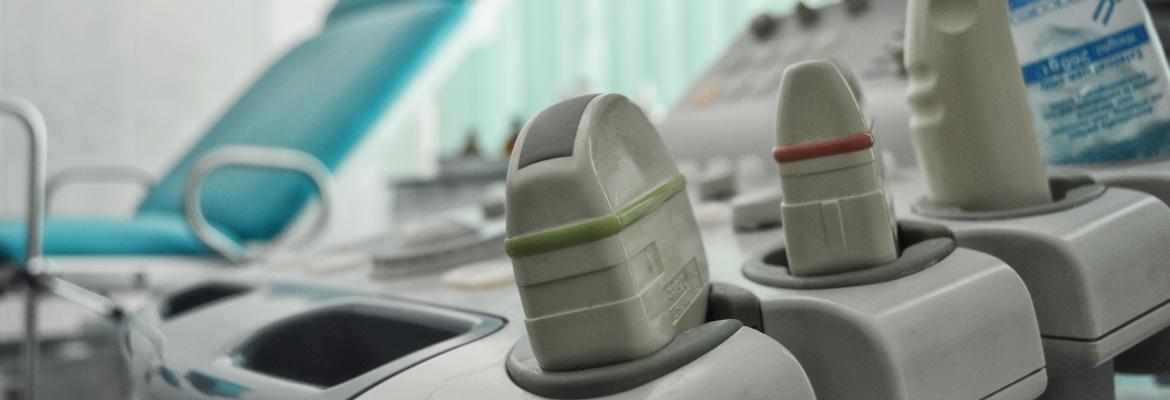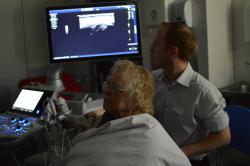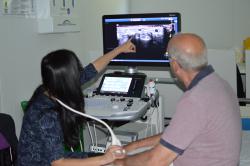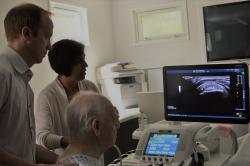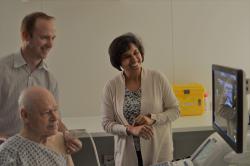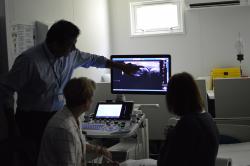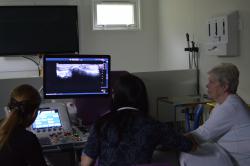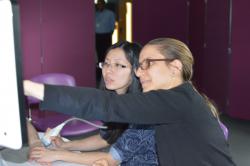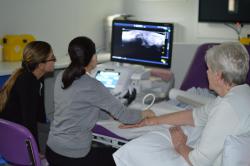East of England Deanery has rapidly evolved its education programme for trainees to develop the necessary skills in musculoskeletal ultrasound. This has been an integral part of helping many centres establish one stop ultrasound scanning in their clinics, particularly useful for Early Inflammatory Arthritis clinics, reducing the delay from initial diagnosis. It has also been shown to assist clinicians in determining if patients are truly in remission and therefore risk of relapse if their therapy is reduced.
Over the last 2 years, trainees have appreciated the need to learn musculoskeletal ultrasound and have recognised its importance in clinical practice. Since 2016 we have been running regular ultrasound training days for Rheumatology trainees across the East of England deanery, travelling around host centres in the region. Previous sessions have focused on basic anatomy and pathology of upper and lower limb joints as well as vascular ultrasound. Theses sessions run 3-4 times per year with the support of many scanning consultants across the region.
Kat Achilleos and Dimos Merinopolos are the ultrasound training reps for the region.
''Having rotated through various trusts that perform MSKUS, I have been fortunate enough to pick up the practice. Understanding the importance of ultrasound in clinical rheumatology had allowed me to appreciate its value and use as an ‘extension of the stethoscope’. It allowed me to hone in on my examination skills and allowed definitive decisions to be made based on the presence of active disease in real-time. It was this initial exposure that ignited my interested and made me want to improve my skills. I have since been on various courses, and later enrolled and completed a post graduate certificate in musculoskeletal ultrasound. Currently, in my final year I run clinics with allocated scanning slots. Learning the anatomy, pathology and physiology of MSKUS has been the most challenging, time consuming and rewarding experience by far.''
- Training rep Kat on her recent USS clinical experience and Diploma Qualification.
GCA Clinics and Diagnostic US Training
There are great oppurtunities for SpRs to also learn US scanning to help establish the diagnosis of GCA,a condition still associated with 15-20% incidence of irreversible permanent sight loss at diagnosis – due to delay in diagnosis and appropriate treatment. This accounts for most long-term steroids prescribed in the community which often leads to steroid related serious adverse events such as diabetes and osteoporotic fragility fractures. The 2018 EULAR Imaging recommendations for LVV have prioritised ultrasound (the presence/absence of a non-compressible halo on temporal artery ultrasound) as the first imaging modality for making the diagnosis in suspected GCA. Ultrasound has a major impact on making an early and urgent diagnosis of GCA in fast track clinics. Immediate treatment then leads to prevention of sight loss which remains till today the dreaded badge of this disease. A negative ultrasound also contributes to appropriate management of GCA mimics, where glucocorticoids can be stopped early and alternative therapies and referrals can be made.
Fast track GCA clinics with the opportunity for trainees to learn diagnostic US are currently utilised by Luton (West Deanery), Southend (South East Deanery) and Norwich (North Deanery), with other sites likely to be take up this service in the near future.
In addition there is an annual course at Southend (see training day page).
Southend also run a GCA fellowship training programme, - people can attend for 2 weeks and participate in the fast track clinics, specialist LVV clinics and learn both GCA complex cases management and ultrasound.
Below are images from a previous SpR USS scanning training day.
